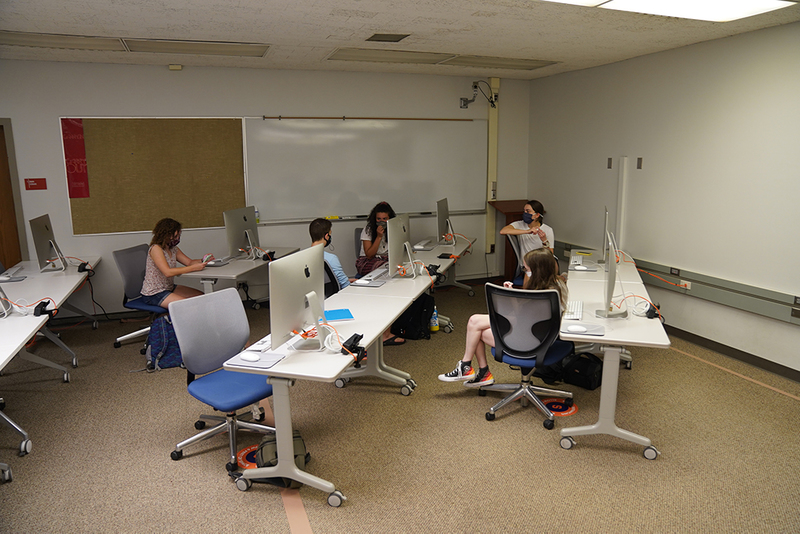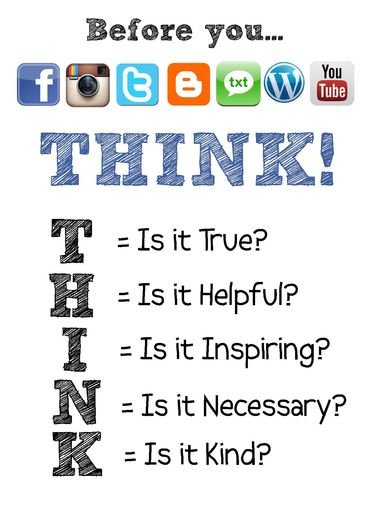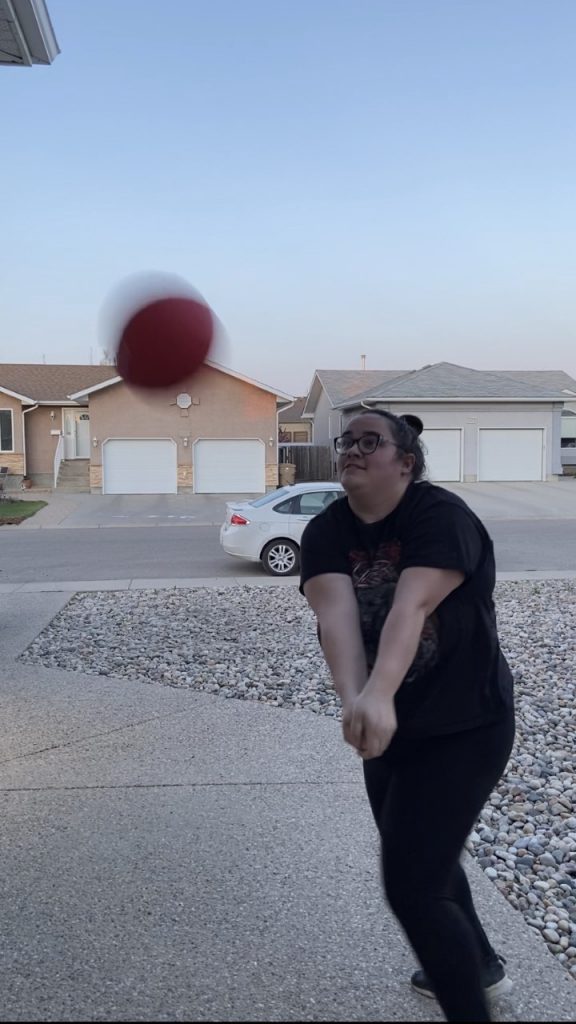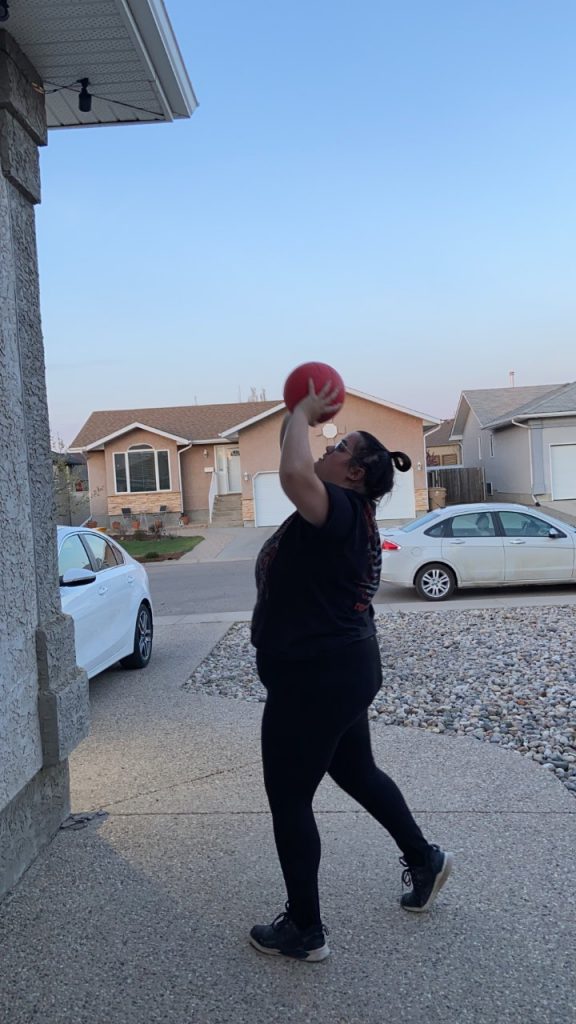My current blog has moved to:
https://hlcpennington.wixsite.com/hailies-eportfolio
Thanks for checking it out!
My current blog has moved to:
https://hlcpennington.wixsite.com/hailies-eportfolio
Thanks for checking it out!
When tasked with telling a story about gender/sexuality/ability/class standing, I couldn’t really think of anything that has been ‘out there’ in my life. Then I thought “well, what do I like?” and the first thing that came to mind is video games. This was a huge opening point because while there’s not a single story I can put to this, I can contest that there are multiple times where I have experienced sexism in video games. Multiple little examples snowballing and making a whole narrative throughout my entire life that I’ve been playing video games.
There is a reason I don’t play games with my microphone unmuted. As soon as I turn it on or try to communicate with my team, if I’m not doing well in the game I’m immediately “looking for attention” by playing these games. There are many things I’ve been called in the midst of multiple video games that’s made me realize that women in video games have more to prove than their male counter parts.
Names or phrases that have been said, include:
While there are many more than just those, especially some explicit terms/names, it does not end there. It’s been a recurring issue throughout all of the video games that I have played, not just one or two, but ALL of the games I’ve played or interacted with. While you would think that most of these people would be adults, saying these things, I have noticed more recently that there are kids (or people that sound like kids) that say these kinds of things. While the situation is grim, I find it kind of funny that even kids nowadays still have this mindset that only guys can play video games and that women are supposed to be ‘in the kitchen’. These roles that have been pushed, as Judith Butler says in her video, that “our acting, or roleplaying, is crucial to our gender” is still enforced on the younger generation. That we are still forcing people to act ‘their gender’ or belittling them to take on these roles. I think that it’s super important for future educators to enforce that these roles should not exist. That these roles should not be put in place regardless of where they are or what they are doing. To be able to see that change in the future and have a time where women are not looked down upon in video games or any other ‘men-centered’ media and content, but to instead celebrate the content without the underlying sexist tones would be a lot great to imagine and I hope that I can help change that by empowering girls in my class and other classes to stand up for themselves and enjoy what they enjoy with no regret or dismay to the people that still think it’s a men-centered field.
Another comment that Butler made in her video is that, “gender is culturally formed, but it’s also a domain of agency or freedom” and I think that yes, it is culturally formed, however, if we continually allow it to be formed like this, these “roles” won’t go away and there will still be people who think that women do belong in the kitchen, or that women don’t deserve to play video games. Reflecting on this, as an educator, I would like to lean into the agency or freedom aspect because then people can decide their own roles and if everyone gets to decide their own roles in society, people might be able to function better and accept each other for who they are rather than their ‘assigned’ gender roles.
Big Think’s video “Judith Butler: Your Behavior Creates Your Gender” here:
Our world has changed so much even since I was in school. The technology that is apparent in our classrooms now, such as casting from your phone and enabling touch screen on the whiteboards has baffled me, containers full of iPads for the students to use, apps for the whole class to learn together at once (such as Raz-Kids). These are just the options for right now, what will come in the future? What will schools change in the future when we become teachers? How will we use all of this technology to the best of our advantage to help and teach the young? All questions to ponder and quickly because times evolve very rapidly. I think that the possibility of having smart schools or even smart classrooms will become a very near realization to us, new teachers, having to advance with the times as everyone has. I do think though that things might not change, or won’t change as much as we’re thinking because, in reality, school is a way to get away from the screen (not in our pandemic currently), it’s a way for students to get together and work in person with others in their class towards a shared learning goal with the HELP of technology. I don’t think that inviting too much technology would be a good way to go about education as I have noticed a struggle with keeping up on zoom and during the whole pandemic, school got a lot harder for everyone.

Whether or not we can change that by planning for that sort of thing is a different story as we were not fully prepared to go online.
Digital Identity will be able to go very far in the future, we’ve already seen this before in articles recently where doctors/nurses/pharmacists were losing jobs because they are bragging that they were going to forge their COVID-19 Immunization cards. People lose their jobs over things they put online now and that’s scary to think about. However, if we educate kids to be mindful online and apply things such as the THINK before you post concepts and help the students at an early age with their digital identity, I think we’ll be okay.

What do you guys think? Let me know!
After having read Peggy McIntosh’s paper, “White Privilege: Unpacking the Invisible Knapsack” (1988), I couldn’t help but feel really empowered but hopeless at the same time. As a white person myself, I think it’s super important to know the extent to which our privilege extends, and use that for good. McIntosh made some really good points though, “systemic change takes many decades” (pg 7), “invisible systems conferring unsought
racial dominance” (pg 6), among many others. Even though it has been many decades since McIntosh wrote this paper, white privilege is still very much present in our common day society. You’d think that since people are more accepting and open, it wouldn’t be like that, however, it goes along with the point she made about the “invisible systems”. These invisible systems still challenge people of colour. They still work to maintain the whiteness of our world. It appalls me about how much of this privilege is still ingrained in our (white peoples) heads, no matter how open and accepting they are. Even I, who I think has changed a lot of my thinking around to be less biased, more inclusive of others, have a long way to go in my process of thinking because this white privilege is drilled into my head and has been since I was born, without really knowing about it. This article was inspiring for the fact that I will start using McIntosh’s way of thinking and list to view it and reflect on it in my own life, to put it into the perspective of my life and the times right now. The disheartening part is that I don’t know what to do with that information other than continuously remind myself that others aren’t getting these ‘chances’ in situations just based on their skin colour and I will do my best to give people of colour the opportunity to have these chances by my own will, but sometimes it’s really out of my control. What do we do then? How do stop white privilege in big corporations? How do we fix the underlying effect it has on our society if not everyone wants to fix it?
Unfortunately, I am left with more questions than answers as it’s still a huge part of our daily lives still and this article was written in 1988. I will continue to reflect and research the topic as I am very passionate about removing that privilege so that everyone is treated how they should be, with utmost respect, given the same opportunities, accommodated for if something stands in the way of these opportunities.
Talaga reflects on the questions of:
“Where do I come from? Where am I going? What is my purpose? Who am I?”
Talaga, T. (2018, Oct 18). All Our Relations: Finding the Path Forward [Lecture Recording]. CBC Massey Lectures. https://www.cbc.ca/radio/ideas/the-2018-cbc-massey-lectures-all-our-relations-finding-the-path-forward-1.4763007
She recounts her times reflecting these questions and when she reflects them. She mentioned prior to this a story about her home in Toronto and how her little ‘wiggle’ of road was only recently named after thousands of years of their ancestry, and that’s where the road came from. The thousands of years of history behind them, that people were looking back on a not realizing how far back their ancestry does really go, but instead paying more attention to the relatively newer building that was built by settlers that inhabited the land much after the Indigenous Peoples. I think that based on the lecture she gave, these questions are very important for the Indigenous Peoples for many reasons.
In Chelsea Vowel’s article, Calling all our superheroes (2013), she mentions her future goals, which means she’s constantly thinking about where she wants to go. One of her examples was that she wants her children to have an Indigenous education, however, in Canadian society it’s really hard to achieve. Therefore, she has some plans put in place to help her children grow in the system they have now, while also remaining vigilant about trying to teach and educate about the Indigenous culture and education that she wants to strive for.
b) Was there anything in the video, the lecture or Vowel’s article that you felt challenged by? If so, how can you use that reaction to further your understanding. If not, what one idea would you like to learn more about.
I think that the whole content of the video, Stolen Children (CBC News, 2015), challenged me. Specifically some of the footage when going back to the time when the survivors would talk about their stories. We’re always told that what we did was horrible, and I very much agree, I want to hear what they have to say, I just feel so ashamed that people were like this. I want to listen and be an active listener and participant in this discussion because it is so important, yet the content is so graphic and hard to swallow. However, applying Sensoy and DiAngelo’s guidelines, I think this is one where we just have to take it as it is, regardless of comfortability because just because it’s graphic to me or others as a whole, that’s what they had to live through so it was multiple times more graphic and hard to bear in their own lives.
We’re back with a week’s progress of Volleyball. Firstly, I knew that there were multiple different versions (court, beach, and grass) but I did not realize that the fine details to train for each individual one would be different (might delve into this later on in my journey). However, after researching each individual training method, the different balls they use, and certain techniques, I realized that there were still the fundamental moves that I needed to work on because I have a baseline knowledge of them.
Bumping/Passing – the core part of this is your ‘platform’, the flat base for the ball to hit to go in the direction you want, making sure that the ball hits your forearms as you want it to hit the flattest part of your arms to get the most control. I watched this video and tried to figure out what my preferred platform was, as I’m still experimenting, I’m not sure which one I like the best yet. Another thing I needed to get out of my head (that was mentioned in the video) was that when you pass, you’re not supposed to swing your arms. Even if I was consciously trying not to swing when passing, I was still doing it a little bit and will need to work on that further, trying to focus instead on using my whole body to get the momentum to the ball.

Setting – I am super excited to learn more about this area because I think that it is the second most interesting position to play in (in my opinion – Libero being the first, but I DO NOT have the skills to do that right now). I haven’t really researched this one that much yet because I read that passing and serving in the beginning stages are probably one of the most important skills to get down before continuing, however, I do practice ‘setting form’ from time to time.

Serving – Serving has been one of the most difficult things to get into so far because I have not played a ball sport in a VERY long time, so the coordination to get a serve right is extremely hard for me, but watching Koko Volley on YouTube (this specific video) has been extremely helpful. She breaks it down into parts to practice each stage of the serve and then finally connect it all together. Since I do not have a net and am primarily practicing at home, I got the height of a normal Volleyball net and measured that out in relation to my house and figured out where I have to hit when I serve to know if I made it ‘over the net’ or not. It’s also been helpful for setting and passing because most of those require going over the net as well.
As for this week, I am going to try and practice everyday and focus on one skill during that hour+ of training, while sprinkling in a little of the other skills if I want something different. Right now I have a really cool drill for passing where my brother stands behind me and throws the ball at the wall and I have to try and pass it to the designated spot on the wall as a sort of hitter coverage drill (if our hitter gets blocked and it comes back to our side of the court). This makes me focus on reaction timing to figure out where the ball is going to go once it gets ‘blocked’ and how fast I can get into position to pass the ball back. Something else I was really interested in doing is the drill of ‘Bump, set, spike‘, and seeing how many times you can do that over and over again, as I have only been able to do 1 successfully, hopefully by the end of the week I can do 2 or more consistently!
This week for research I am going to try and look up more passing drills and more ways to serve! Overall, I’m super excited to continue practicing and getting outside since it’s been really nice lately. Thanks for joining me this week! もう 一回!
Twitter has been a very interesting learning curve the past couple of weeks. In the past, I’ve only used it to stay up to date on video game knowledge and art and have always thought that people could just post what they want saying what they want, and not get any repercussions for it, which turned me away from the educational/political aspect of it, however, this past week, interacting with teachers from all over has taught me that they are there to help and provide any resources that might help other teachers get what they need. Building this community now is actually very influential because now I have some resources for my classroom that I could use in the future while just browsing social media? Easy win for my future self, if I do say so myself. SaskEdChat was a really overwhelmingly positive experience for me because everyone was sharing their opinion and being mindful of others while respectfully talking about certain topics, which should be more commonplace in our society rather than hiding behind the screen and typing what you want. Everyone was so supportive of one another and when people would comment on tweets it felt like I was having an actual conversation with a human being rather than a picture on the screen. I highly recommend these types of experiences because I came out more validated, while also bursting with new ideas and more resources to use in the future!
Here is a tweet by Trina Crawford, one of the moderators for the SaskEdChat, and the wonderful bulletin boards she has at her school. Having this idea permanently on Twitter allows me to come back to it whenever I want, whether it be a year from now or 10!
Twitter in the classroom is an interesting topic because I think it could be really useful in keeping students engaged and on track with their progress. It would be a really good way to show the timelapse version of a student’s learning because once they’re done your class or school, you can go through all of the tweets from when they first started and look at how far their understanding has come or how much their perception has changed on a certain topic! I’ll definitely be using it as a tool to track progress, even if it is small, just like we are doing with the learning project!
Two Acres and a Cow: ‘Peasant’ Farming for the Indians of the Northwest, 1889-97 is an article about the Indian Peoples and how they struggled to get through the 1890s with the Peasant Farming Policy put in place. However, there were a couple of good things that came out of it, the Indian Peoples did not mind the switch to agriculture at first until the Peasant Farming Policy was implemented, which meant they had to get approval from a ‘superintendent’ in writing to sell, barter, exchange, or give their produce to others. This caused a lot of conflicts because people of close quarters, such as the provincial superintendent, were okay giving the go-ahead to a lot of the Indian Peoples, whereas the higher-ups didn’t exactly like that they were doing that. White Settlers began to become upset that the Indian Peoples were getting ahead of them financially and took a stand against it. While they didn’t receive much out of it other than a few lenient passes from the high ups, the Indian Peoples were now under lock and key with Hayter Reed where he was not approving anything they could sell or exchange, along with this the Indian Peoples were not allowed to buy machines to make farming easier even though they had the same amount of acreage as some white settlers, because they were seen as ‘non-self-sufficient’ if they couldn’t do it by hand.
Hi all!
Today’s discussion is on the widely used RSS (Really Simple Syndication) feed reader, Feedly. While it says really simple, I’m pretty sure this is a point at how everything is conveniently grouped together, because I had a very difficult time using Feedly and trying to set up feeds and picking out reliable sources. When you make a new feed and search what kind of tag you want to follow, it gives recommendations on which people post about those kinds of tags, but what it doesn’t tell you is whether or not they’ve posted in years, so some of my math feeds are pretty empty because people haven’t posted in those feeds in months. So far though, my Educational Technology feed has actually been super useful, I’m pretty sure this one I just followed the big group feed, so I know that there are multiple articles being posted during the week so I didn’t have to worry. This Educational Technology feed has been insightful for multiple reasons.
I only have these two feeds for right now, and I am actively trying to look for more engaged feeds, so if you have any recommendations for anything at all, let me know!
To briefly start off, I will mention the guidelines I will be reflecting on.
” 1. Strive for intellectual humility
2. Recognize the difference between opinions and informed knowledge.
3. Let go of personal anecdotal evidence and look at broader societal patterns.
4. Notice your own defensive reactions and attempt to use these reactions as entry points for gaining deeper self-knowledge.
5. Recognize how your own social positionality (such as your race, class, gender, sexuality, ability-status) informs your perspectives and reactions to your instructor and the individuals whose work you study in the course. “
Sensoy, Ö., & DiAngelo, R. (2017). How to Engage Constructively in Courses. In J. A. Banks (Ed.), Is Everyone Really Equal? (2nd ed., Ser. Multicultural Education Series, pp. 4–4). story, Teachers College Press.
Each of these guidelines pose some type of dilemma, as I have been living in my own closeted and closed off mind, and have only recently learned to open up to my own biases, and I will be reflecting on each guideling and how I will learn to apply it in this class.